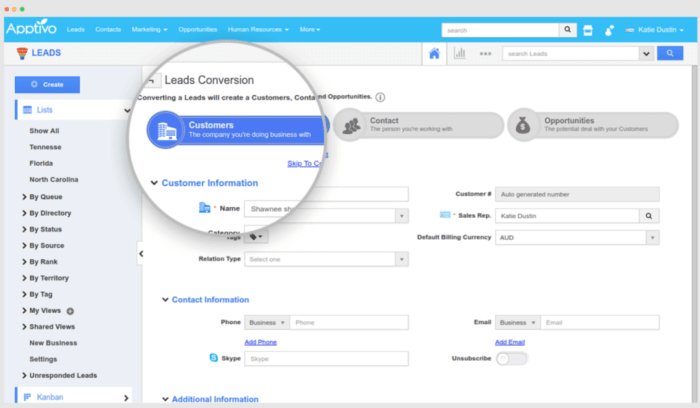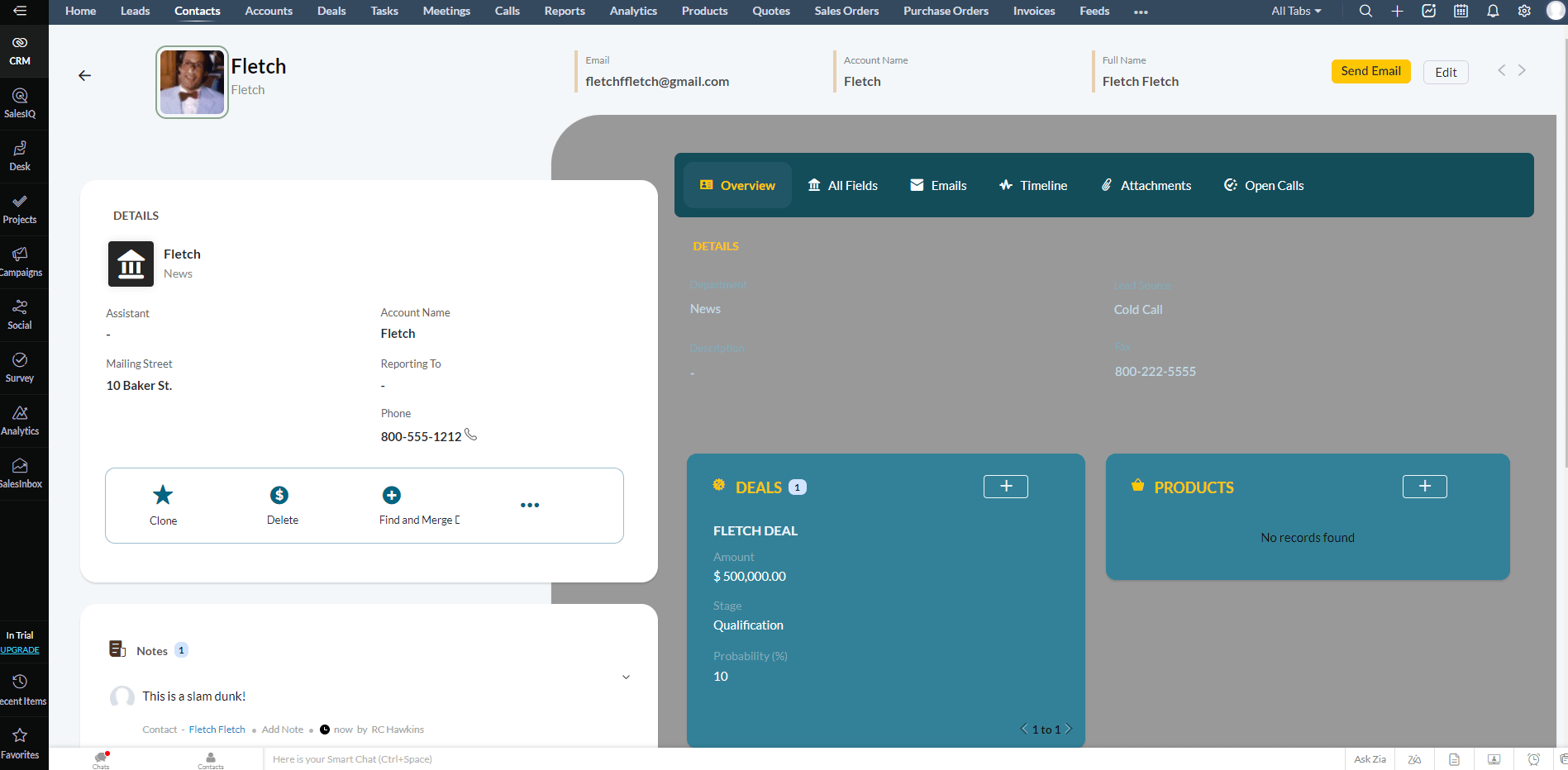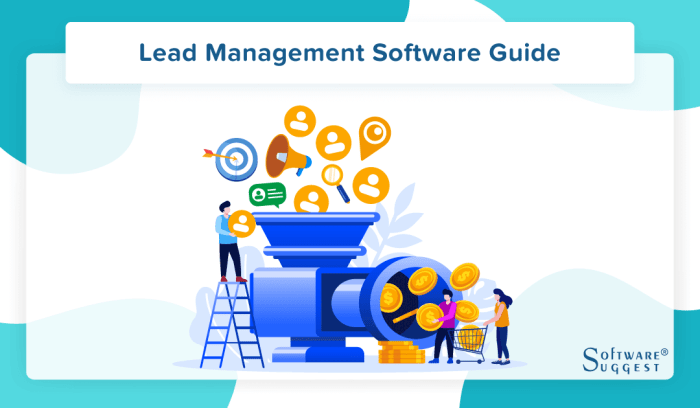Software to manage sales leads is revolutionizing how businesses nurture potential customers. Efficient lead management isn’t just about storing contact information; it’s about strategically organizing, prioritizing, and nurturing leads throughout the sales funnel. This allows sales teams to focus their efforts on the most promising prospects, maximizing conversion rates and ultimately boosting revenue. The right software can automate repetitive tasks, provide valuable insights into lead behavior, and improve overall team productivity.
From simple CRM systems to sophisticated sales automation platforms, a variety of options cater to businesses of all sizes and industries. Choosing the right software depends on factors such as budget, team size, sales process complexity, and integration needs with existing systems. This selection process requires careful consideration of features like lead scoring, workflow automation, reporting and analytics, and integration capabilities.

Source: sellingsignals.com
In today’s competitive business landscape, efficiently managing sales leads is paramount to success. A robust sales lead management system is no longer a luxury; it’s a necessity for businesses of all sizes striving for growth and profitability. This comprehensive guide delves into the world of sales lead management software, exploring its features, benefits, and how to choose the right solution for your specific needs.
We’ll cover everything from basic functionalities to advanced analytics, helping you navigate the complexities and optimize your sales pipeline.
Understanding the Importance of Sales Lead Management Software
Before diving into the specifics of software, let’s establish the crucial role it plays in boosting sales performance. Effective lead management isn’t just about collecting contact information; it’s a strategic process encompassing lead capture, qualification, nurturing, and conversion. Without a systematic approach, leads can easily slip through the cracks, resulting in lost opportunities and diminished ROI. Sales lead management software provides the structure and tools necessary to streamline this entire process, ultimately increasing sales efficiency and revenue.

Source: cloudinary.com
Key Benefits of Utilizing Sales Lead Management Software:
- Improved Lead Organization and Tracking: Centralized databases provide a clear overview of all leads, their status, and interaction history, eliminating the chaos of scattered spreadsheets and emails.
- Enhanced Lead Qualification: Software helps identify high-potential leads based on pre-defined criteria, allowing sales teams to prioritize their efforts and focus on the most promising prospects.
- Automated Lead Nurturing: Automated email sequences and personalized messaging nurture leads throughout the sales funnel, increasing engagement and conversion rates.
- Increased Sales Productivity: By automating repetitive tasks, sales teams can focus on building relationships and closing deals, leading to increased productivity and revenue.
- Better Sales Forecasting and Reporting: Real-time data and insightful reports provide valuable insights into sales performance, allowing businesses to make data-driven decisions and optimize their strategies.
- Improved Customer Relationship Management (CRM) Integration: Seamless integration with existing CRM systems ensures a holistic view of customer interactions and enhances overall customer relationship management.
Choosing the Right Sales Lead Management Software: Key Features to Consider
The market offers a wide array of sales lead management software solutions, each with its own unique features and capabilities. Selecting the right software depends on several factors, including your business size, budget, specific needs, and existing tech infrastructure. Here are some key features to consider when evaluating different options:
Essential Features:
- Lead Capture and Tracking: The software should seamlessly integrate with your website and other marketing channels to capture leads effectively and track their progress through the sales pipeline.
- Lead Scoring and Qualification: Look for features that allow you to assign scores to leads based on predefined criteria, prioritizing those most likely to convert.
- Workflow Automation: Automation capabilities, such as automated email sequences and task assignments, are crucial for boosting efficiency and improving response times.
- Reporting and Analytics: Robust reporting and analytics features provide valuable insights into sales performance, allowing you to identify areas for improvement and optimize your strategies.
- CRM Integration: Seamless integration with your existing CRM system ensures a unified view of customer interactions and enhances overall customer relationship management.
- Mobile Accessibility: Access to your lead data and management tools on mobile devices is essential for staying connected and responsive on the go.
Advanced Features (Consider based on your needs):, Software to manage sales leads
- Predictive Analytics: Advanced analytics can predict future lead behavior and identify high-potential prospects with greater accuracy.
- Sales Intelligence: Integration with sales intelligence platforms provides access to valuable market insights and competitor information.
- Social Media Integration: Connecting your lead management system with social media platforms can expand your reach and identify new leads.
- A/B Testing Capabilities: A/B testing allows you to optimize your lead nurturing campaigns and improve conversion rates.
Popular Sales Lead Management Software Options
The market is brimming with options, from established giants to nimble startups. Research is key. Some popular choices include (but are not limited to): HubSpot, Salesforce Sales Cloud, Zoho CRM, Pipedrive, and Freshsales. Each platform offers a unique set of features and pricing models, so it’s crucial to compare them based on your specific requirements and budget.
Implementing and Optimizing Your Sales Lead Management System
Successfully implementing a sales lead management system involves more than just choosing the right software. It requires a strategic approach that encompasses data integration, team training, and ongoing optimization. Consider these key steps:
- Data Migration: Carefully migrate your existing lead data into the new system to avoid data loss and ensure accuracy.
- Team Training: Provide comprehensive training to your sales team on how to effectively use the software and its features.
- Process Standardization: Establish clear processes for lead capture, qualification, and nurturing to ensure consistency and efficiency.
- Regular Monitoring and Optimization: Continuously monitor the system’s performance, analyze data, and make adjustments as needed to optimize its effectiveness.
Frequently Asked Questions (FAQs)
- Q: What is the cost of sales lead management software? A: The cost varies greatly depending on the chosen software, features, and number of users. Some offer free plans with limited features, while others have tiered pricing based on functionality and user count. Expect to invest in a solution that aligns with your budget and scale.
- Q: How long does it take to implement sales lead management software? A: Implementation time depends on the complexity of the system, data migration requirements, and team training needs. It can range from a few weeks to several months.
- Q: Can I integrate my existing CRM with sales lead management software? A: Most reputable sales lead management software offers seamless integration with popular CRM platforms, ensuring a unified view of customer interactions.
- Q: What are the key metrics to track for sales lead management success? A: Key metrics include lead conversion rate, sales cycle length, customer acquisition cost (CAC), and return on investment (ROI).
- Q: How can I ensure data security with sales lead management software? A: Choose software providers with robust security measures, including data encryption and access controls. Regularly review security protocols and stay updated on best practices.
Conclusion
Investing in robust sales lead management software is a strategic move that can significantly impact your business’s bottom line. By streamlining your sales processes, automating repetitive tasks, and providing valuable insights into sales performance, you can improve efficiency, boost conversion rates, and ultimately drive revenue growth. Take the time to research and select the solution that best fits your needs, and remember that ongoing optimization is key to maximizing its potential.
References: Software To Manage Sales Leads
Call to Action
Ready to transform your sales process and unlock significant growth potential? Explore the sales lead management software options discussed above and choose the one that aligns with your specific needs. Start optimizing your sales pipeline today!
In conclusion, implementing software to manage sales leads is a strategic investment for any business aiming to optimize its sales process and achieve sustainable growth. By streamlining workflows, improving team efficiency, and providing valuable data-driven insights, these tools empower sales teams to convert more leads into paying customers. The key to success lies in selecting a solution that aligns with your specific business needs and integrating it effectively into your existing sales strategy.
The return on investment, in terms of increased sales and reduced operational costs, makes it a worthwhile endeavor for companies of all sizes.
FAQ Section
What are the key features to look for in sales lead management software?
Key features include lead scoring, contact management, workflow automation, reporting and analytics dashboards, integration with other business tools (like email marketing platforms), and mobile accessibility.
How much does sales lead management software typically cost?
Pricing varies widely depending on features, scalability, and vendor. Expect to find options ranging from free plans with limited functionality to enterprise-level solutions with substantial monthly or annual fees.

Source: amazonaws.com
Can I integrate sales lead management software with my existing CRM?
Many solutions offer seamless integration with popular CRM platforms. Check the software’s compatibility before purchasing to ensure smooth data flow and avoid potential conflicts.
How long does it typically take to implement sales lead management software?
Implementation time depends on the complexity of the software and your business’s specific needs. Simpler systems might be up and running within days, while more complex integrations could take weeks or even months.